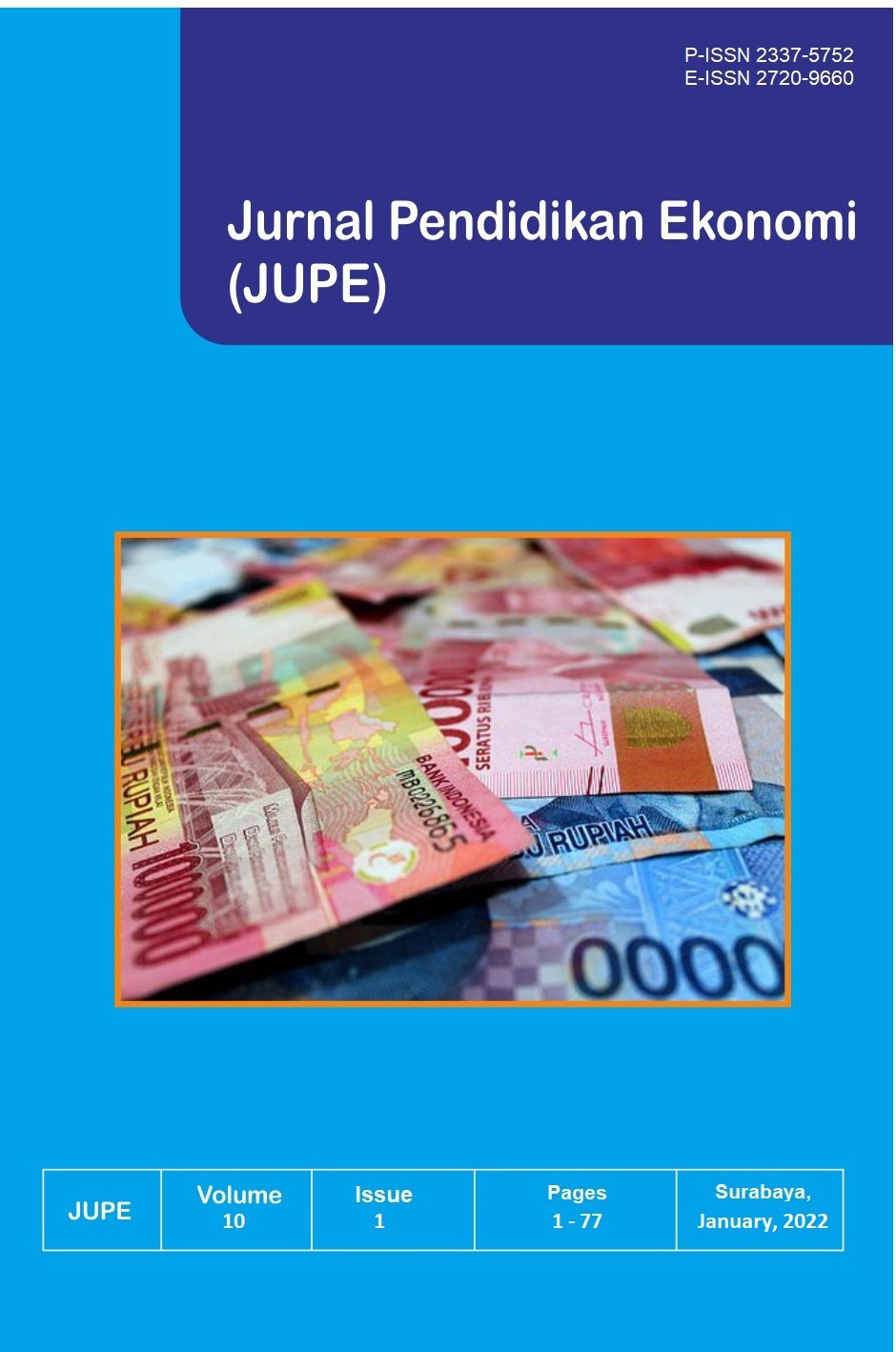Pembelajaran Kewirausahaan di SMA Selama Pandemi Covid-19
DOI:
https://doi.org/10.26740/jupe.v10n1.p15-22Keywords:
entrepreneurship learning, pandemicAbstract
The objectives of this study are: 1) to describe the implementation of entrepreneurship learning in high school during the Covid-19 pandemic, and 2) to provide solutions on how to improve the quality of entrepreneurship learning. This study uses a descriptive method. Collecting data using a questionnaire. Respondents were 1,347 high school students in grades XI and XII from 10 high schools in Sragen The results showed that during the Covid-19 pandemic, entrepreneurship learning taught more about theory (69.1%). The method used by teachers when teaching is assignments (54.8%) on assignments/homework on entrepreneurship theory. The digital platforms used by teachers are google classroom (39.3%), zoom (9.6%, WhatsApp (25.5%), google meet (16%), and other platforms 9.5%. In general, students assessed that entrepreneurship lessons are in accordance with their needs and provide provisions to become entrepreneurs. As many as 64.5% of students feel enthusiastic about participating in lessons. Improvements in entrepreneurship learning according to students' perceptions are: the material is more applicable and interesting, trained in how to overcome real problems, and balanced with practice. Entrepreneurship education can be done through intra-curricular activities in class, co-curricular, and extra-curricular
Downloads
Downloads
Published
How to Cite
Issue
Section
License
Copyright
- Authors retain copyright and grant the journal right of first publication with the work simultaneously licensed under a Creative Commons Attribution License that allows others to share the work with an acknowledgment of the work's authorship and initial publication in this journal.
 Abstract views: 604
,
Abstract views: 604
, PDF Downloads: 1049
PDF Downloads: 1049











